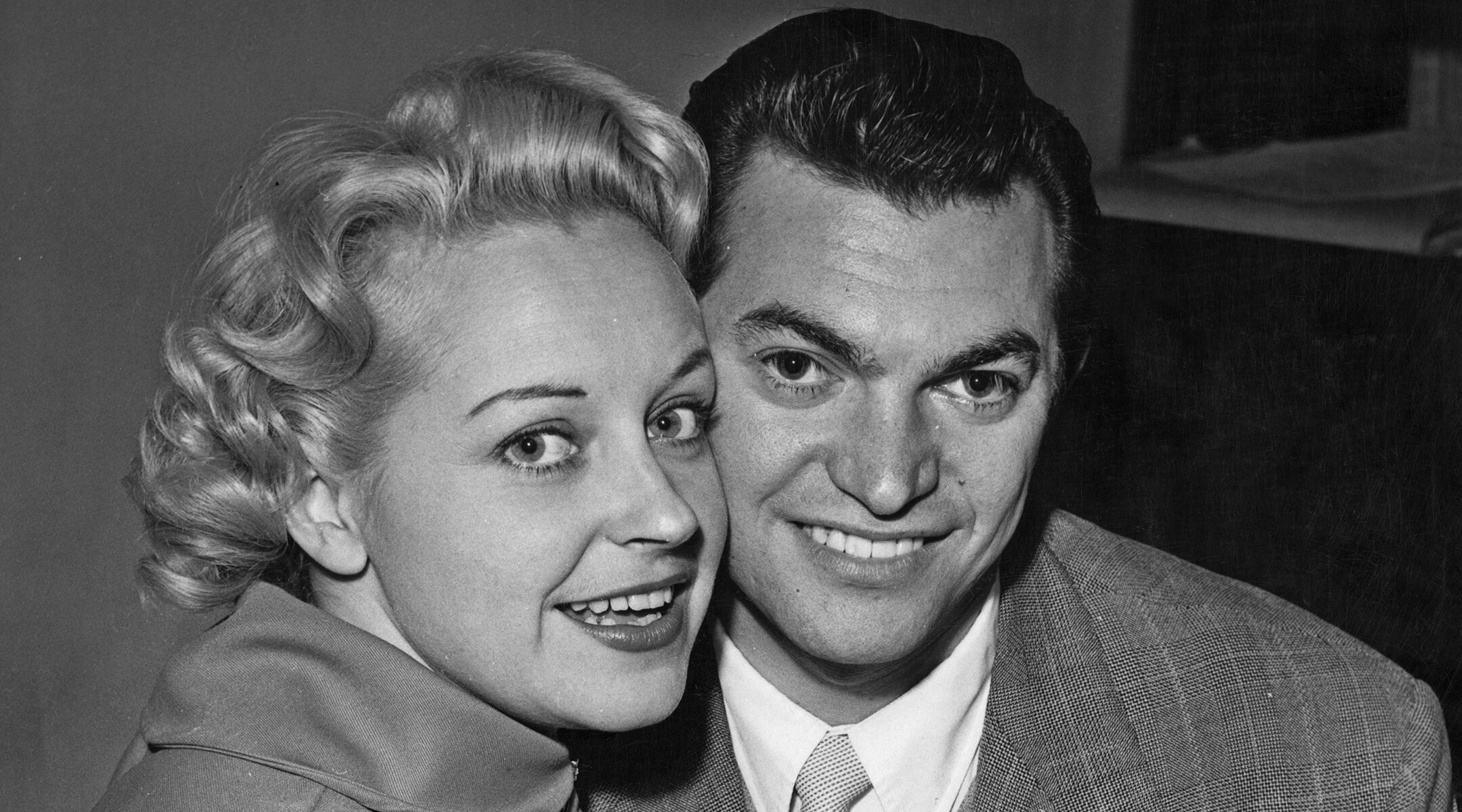(JTA) – With a single driving guitar riff, the man born as Monty Noserovitch changed pop-culture forever — although he had to fight to get the credit for it.
British Jewish composer Monty Norman, who died Monday at the age of 94, wrote the original version of the James Bond theme, one of the most enduring compositions in movie history.
Born to Jewish Latvian immigrant parents in London’s East End in 1928, Norman first made a name for himself as a songwriter for early British rock groups and West End musicals, and as one half of a music-comedy double act with Benny Hill. He was an accomplished singer in his own right, too.
Then film producer Albert “Cubby” Broccoli called Norman in 1962 to compose the theme music for the film adaptation of Ian Fleming’s novel “Dr. No,” and convinced him to take the job by offering him and his wife, actress Diana Coupland, an all-expenses-paid trip to the film’s shooting location in Jamaica.
The thriller, starring Sean Connery, was the first big-screen adventure for superspy James Bond, and it needed a distinctive bit of music to match. According to reports, Norman repurposed a piece he had written for a planned musical adaptation of a V.S. Naipaul novel, changing the sitar melody to an electric guitar.
“His sexiness, his mystery, his ruthlessness — it’s all there in a few notes,” Norman would later say about how the theme represented Bond.
The song has been used in 25 Bond films to date, as the franchise spanned half a century and multiple lead actors to become one of the highest-grossing film series of all time. The latest entry, 2021’s “No Time To Die,” grossed more than $750 million worldwide.
The theme’s consistency helped endear millions of fans across the globe to the movies: Those stabbing brass notes and slinky guitar riff, accompanying a silhouette of Bond himself shooting out the camera, were a surefire sign that audiences were in for a wild ride.
The number was rearranged by John Barry for “Dr. No,” and after the James Bond franchise became a smash hit and its theme music inescapable, Barry was often erroneously credited with having written the whole thing. Norman even sued the English Sunday Times newspaper for libel, and won, when it claimed in a 1997 article that Barry was the song’s true author.
Bond fans have long debated exactly who deserves the lion’s share of the credit for the theme, but Norman assuredly made his mark on 007.
JTA has documented Jewish history in real-time for over a century. Keep our journalism strong by joining us in supporting independent, award-winning reporting.






